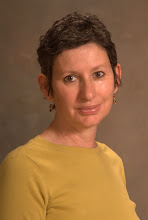Nothing heightens one's awareness more than a first-hand encounter. Not surprisingly, I'm having a consciousness-raising experience around the breast cancer issue. Relevant headlines, and even small references, are grabbing my attention. During one recent week, I happened upon three different stories in the Los Angeles Times, all with breast cancer angles.
The first article was about two local high school students, Sarah Waliany and Shelina Kurwa, who were on their way to New York to compete as finalists in the Siemens Competition in Math, Science & Technology for their noteworthy research on breast cancer treatment. The students, who are cousins, discovered a gene strand that causes some women to be resistant to the drug Herceptin, which is used against certain types of breast cancers. When asked why they selected breast cancer research for their project, the girls said they became motivated after several friends' mothers were diagnosed. Whether or not these young women garnered a first place in the science competition, you have to applaud their efforts and be grateful that they're in the lab.
The second story was an obituary about the death of a high-ranking L.A. city official. (I'm not being morbid; I've read the obits for years.) She was stricken at age 55 by a particularly aggressive breast cancer recurrence.
A few days after seeing the obit, I noticed an article, buried on page 17, announcing that African American women, particularly those over 50, are at greater risk of developing breast cancer than previously believed. According to the report, "A growing body of evidence suggests that breast cancer tends to be much more aggressive and deadly among black women, which could help explain why they are more likely to die from it even though fewer of them get it."
After the third news reference, I started to make connections. Had the timing been different, could the high school students' research have impacted the treatment of the city official? Was the city official an African American woman, who could have been helped by more vigilant screening? Finally, why was the article about breast cancer risk among black women hidden on page 17, and not given more prominent placement?
My recent grasp of the breadth of this disease is not just coming from news reports, either. People are continuing to share with me poignant stories, mostly about their mothers or their mothers-in-law. Their experiences make me wonder about all of the sisters, daughters, and granddaughters, who know that their family histories place them at higher risk. Of course, none of us can take any real comfort in being outside a high-risk group. When women develop cancer, more often than not, it's in their breasts. According to the organization known as Susan G. Komen For the Cure, more than 175,000 American women will be diagnosed this year. With that many new cases, it's not surprising that even high school students are personally aware of women -- the mothers of their friends -- who are facing treatment.
If you're regularly following this blog, your consciousness has already been raised. But we need to take action, too. The truth about this cancer is that the screening methods are imperfect, and many cases go undetected until the disease is dangerously entrenched. Until we have reliable prevention methods, our collective voice is essential. We need to speak to doctors about better screening, to speak to government leaders about more research and funding, and to speak to each other about arming ourselves with greater knowledge. While only a few of us have the ability to create significant research, as the students did for the Siemens competition, everyone can find a way to contribute.
12/12/07
Subscribe to:
Post Comments (Atom)





No comments:
Post a Comment